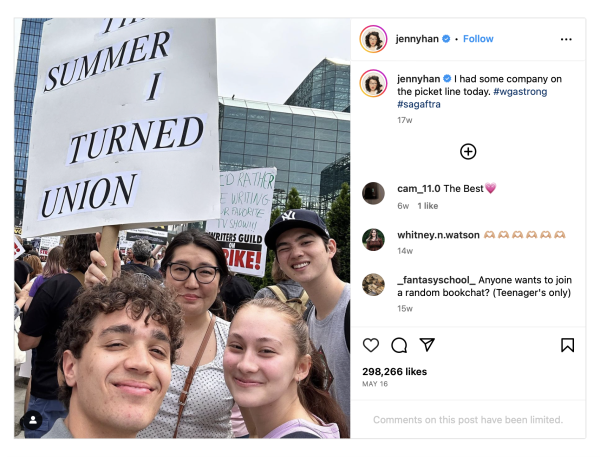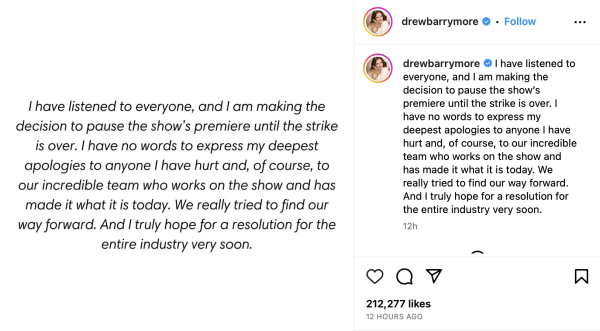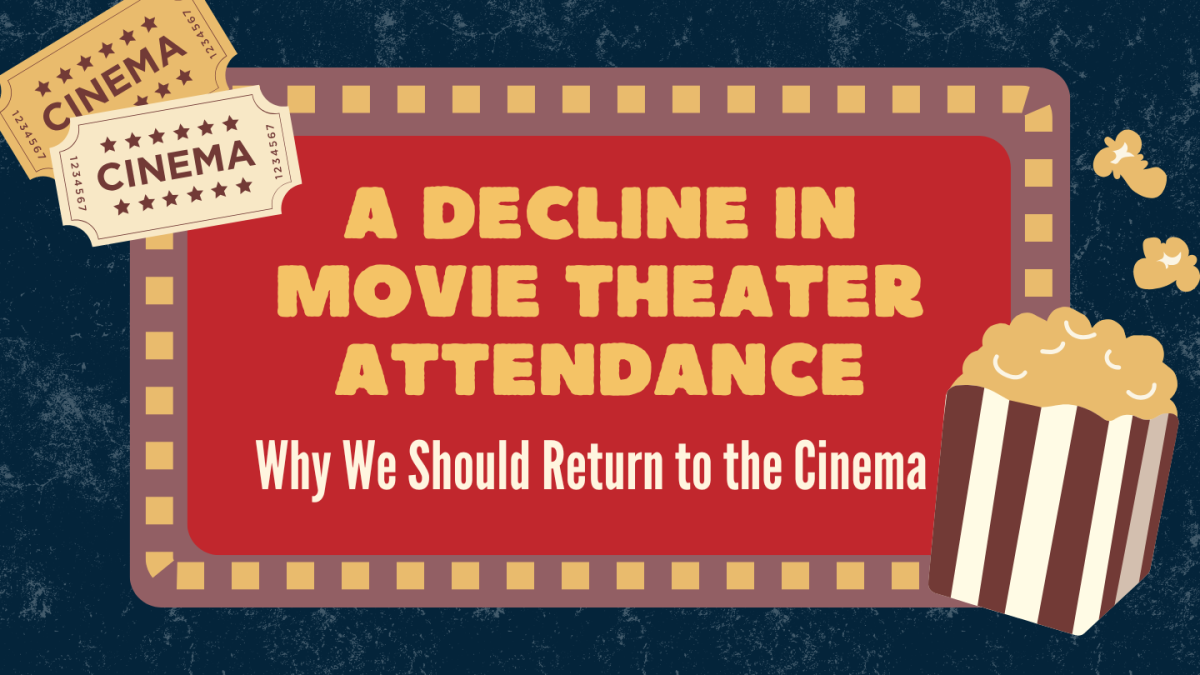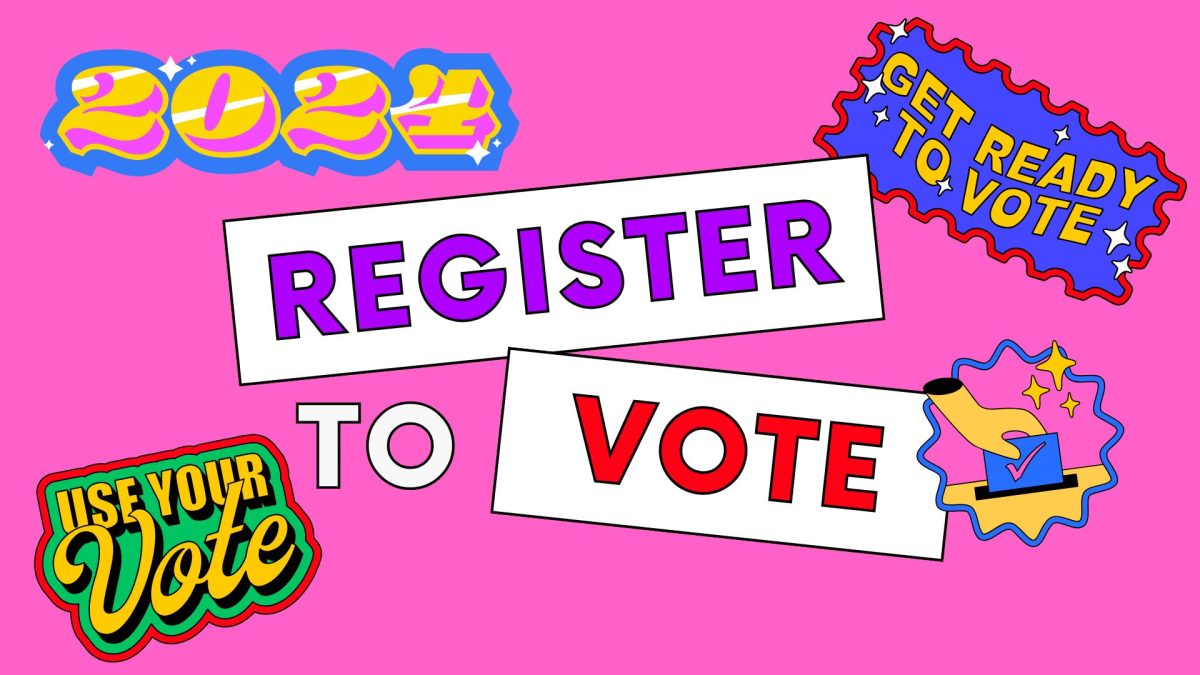On May 2nd, 2023, the Writers Guild of America (WGA) went on strike against the Alliance of Motion Picture and Television Producers (AMPTP) over ongoing labor disputes. The strike has affected various TV shows such as Netflix favorites, Cobra Kai, Stranger Things, Emily in Paris and hit shows like Euphoria, The Summer I Turned Pretty, Saturday Night Live and many more.
138 days later, Hollywood writers and actors continue to unite and protest on picket lines, reaching its 100th day milestone on August 9th, 2023 – but why does it matter? Other than the toll it has taken on our favorite shows, the purpose of the strike goes deeper than our usual everyday Hollywood drama. Here’s what you should know about the 2023 Writers Guild of America Strike.
The Main Issues:
- Higher Pay
While employment for writers has increased in the past couple of years due to the increase in streaming services, writers are being severely underpaid. The guild is seeking major compensation to account for inflation as well as increases in health funds and pension plans. With inflation in mind, writers’ pay has declined 14% in the last 5 years. According to the WGA, most writers are barely making a living wage.
Some factors accounting for pay cuts are the decrease in episodes per season. Writers’ rooms have gotten smaller as the demand for episodes in a season has lessened significantly. In past years, the average number of episodes per season fell from 12-24, nowadays seasons are made up of only 6-8 episodes. Since writers get paid weekly, the time to write 6-8 episodes only takes 2-3 months, compared to former seasons where 12-24 episodes would take about a year, thus making it extremely difficult for writers to find a stable job to sustain day-to-day life.
2. Better Residuals
The WGA defines residuals as “compensation paid for the reuse of a credited writer’s work.” In other words, writers make money for every time an episode or movie is rerun since its first release. However, as streaming platforms have become more popular in the last couple of years, agreements for residuals have become neglected since there is no use for reruns or additional airings with streaming platforms. The WGA demands changes in their contract agreements regarding residuals in order to close the loopholes streaming platforms provide.
For example, in an interview with Perfect Union, Abbott Elementary writer, Brittani Nichols shared that she earns $13,500 per re-air on the network, and also earns $700 each time that episode is on new media-streaming. However, now that the show is being streamed on Hulu, HBO Max, and Disney+, the revenue that would have been made from re-airs is now made exclusively through monthly or annual subscriptions, removing the need for re-airing. This creates a major issue for writers as residuals are one of the most important ways they get paid.
3. Limiting the use of AI
In the past few years, artificial intelligence (AI) has taken over the internet, whether it be through social media, education, the music industry, and Hollywood. The WGA raised their initial concerns regarding the use of AI in script writing, asking that “AI can’t write or rewrite literary material; can’t be used as source material; and MBA-covered material can’t be used to train AI.” However, the AMPTP responded with an offer to hold “meetings to discuss advancements in technology,” rejecting the requests of the WGA.
Not only will the use of AI take away job opportunities for writers, but proposals for using AI to initially write scripts then hiring writers to “rewrite” or revise for lesser money will also affect writers negatively. The WGA also argues that the implementation of AI in writers rooms take away the purpose of writers and creatives working on projects as well as tarnishes their intellectual property.
4. Improved Staffing Requirements
Returning to the concept of writers’ rooms, “mini rooms” made their debut during the COVID-19 pandemic where only a few writers met via Zoom to write episodes. Since then, writers in “mini rooms” have been significantly underpaid for the work they’ve been doing per episode. To solve this issue, the WGA proposed minimum staffing levels to prevent underpaid writers from overworking.
In an interview with Variety, Ellen Stutzman, the guild’s chief negotiator, says, “It’s not acceptable for the companies to just say, ‘Well now we want you do all the work with fewer people in a smaller amount of time and that’s fine… The guild must look at saying, ‘This is how the business has operated, this is the amount of time it takes, and so writers have to be employed in that fashion.’”
Co-chief negotiator, David Goodman, adds that the term “mini room” is dismissive. “It’s a writers room. A writers room is a writers room. Work is work.” he says. Improving staffing requirements will not only lighten the workload for writers, but also enhance the quality of their work instead of worrying about the quantity of writers in a room.
How has Hollywood been affected?

The WGA isn’t the only guild who’s been protesting the AMPTP, but the Screen Actors Guild and American Federation of Television and Radio Artists (SAG-AFTRA) have been on strike since July 14th, 2023. For example, members of the cast of Amazon Prime’s The Summer I Turned Pretty showed their support along with producer and writer of the show and series, Jenny Han, on May 16th (as shown on Han’s Instagram) with the caption, “I had some company on the picket line today. #wgastrong #sagaftra”
On July 28th, 2023, the 2023 Emmys postponed their award show to an unknown date, but rumors say the postponed date will land in January 2024. However, there’s no way of telling when the strikes will end, and of course, the Emmys can’t go on without writers or actors.
By August 9th, the strike surpassed the 100-day mark, making it the second longest strike in WGA history. The longest WGA strike dates to 1988, which lasted 154 days. As of today, the WGA will have been on strike for 138 days while SAG-AFTRA will be on strike for 64 days.
Going into late August, negotiations between the WGA and AMPTP were in the works, but ultimately did not come to agreement. The WGA ends off the summer still on strike. By September 1st, Marvel announced the delays of their new releases Echo, X-Men ‘97, Daredevil: Born Again, Agatha: Darkhold Diaries, Ironheart, and Wonder Man which either have unannounced premiere dates or pushed back to January 2024.
On the other hand, some shows have resumed regularly scheduled programming. A prime example being The Drew Barrymore Show, which has been picketed as it continues without WGA writers. Barrymore announced the decision to resume production on September 11th, 2023, to look out for other members of the crew. However, on September 17th, 2023, Barrymore renounced her decision to resume production in an Instagram post stating she is “making the decision to pause the show’s premiere until the strike is over.”

Viewers’ reactions to Barrymore’s decision are polarized as many are glad to see her stand with the WGA, while others empathize for the other members of the show such as the crew who will now be jobless for the remainder of the strike. The Drew Barrymore Show is just one of hundreds of shows and movies facing the consequences of the strike.
Is there an end coming?
As of now, the WGA projects the strikes are still scheduled to continue. The WGA reports they are nowhere near an agreement with major Hollywood studios. Although, on September 14th, 2023, the WGA announced they are in the process of negotiating a time to get back in the room. However, there seems to be no end to the protests nor any return to production of many shows and films. The only thing to do is to wait until the WGA and AMPTP come to an agreement, benefiting both ends. As far as the WGA receiving all their demands met, it’s difficult to tell whether all their needs will be satisfied. If the AMPTP and major Hollywood studios want their programs to run again, they may have no other choice but to come to an agreement with the WGA. While we anticipate the end to the WGA strikes, this may be only the beginning for the expansion of writers’ rights behind the silver screen.








